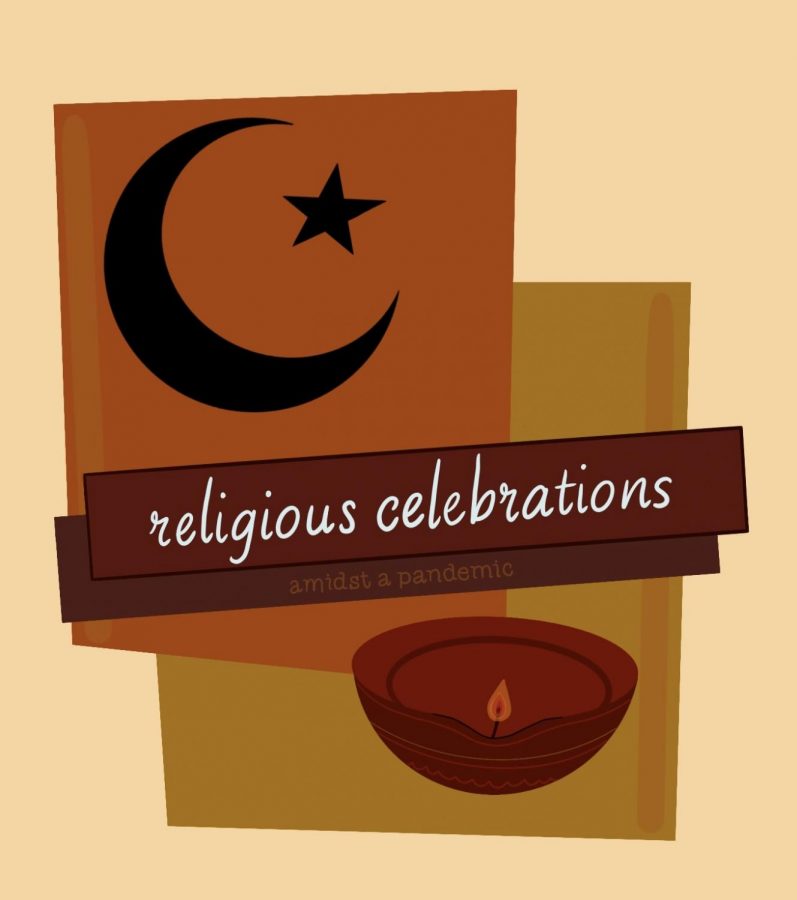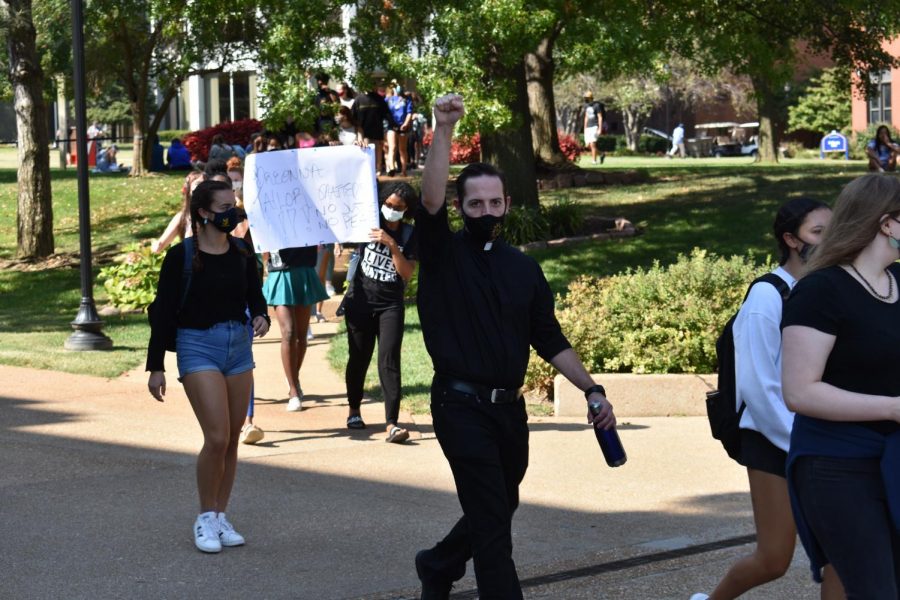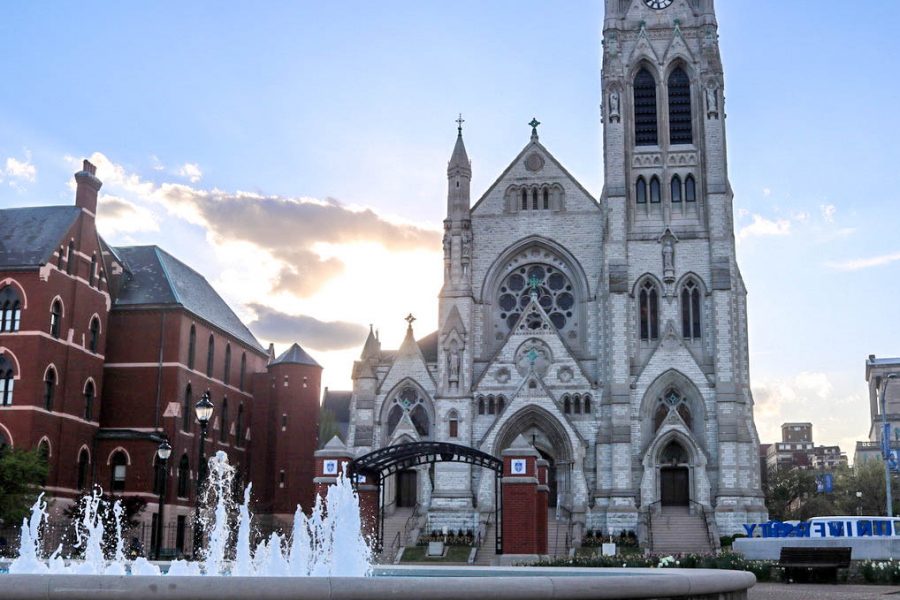“The one unchangeable certainty is that nothing is certain or unchangeable.” John F. Kennedy really hit the nail on the head with that one (Irish people have a way with proverbs, trust me). Nearly every aspect of the human experience is dynamic; change serves as a natural law, poking holes in seemingly impenetrable comfort zones. Long-lasting traditions that become interwoven into the fibers of our existence over time are not immune.
Even the Roman Catholic Church, one of the few institutions that can go toe-to-toe with the winds of change throughout history ultimately succumbs (even if the change is self-imposed.)
Sitting in a pew of Saint Francis Xavier College Church on Nov. 27, 2011, I found myself teetering on the brink of an existential crisis. Well, not really, but I felt old. Truth be told, I felt a bit sad, too. I had spent 20 years of attending Catholic mass, and each and every Sunday, the core components remained constant. As a youngster more concerned with Pokémon then psalms and praise, I found the repetition to be boring. As my mind and spirit matured over the years, I learned to appreciate the weekly worship and celebration for its theological value and spiritual enrichment. I also learned to appreciate the beautiful gift of constancy.
The older I get, the more things change. I was convinced that the one hour every Sunday spent in Mass was 100 percent resistant to change.
Well, like most things I speculate on, I was wrong. After a minute of lamenting the human condition and feeling old enough to start eating dinner at 4:30 p.m. and watching ‘Matlock’ re-runs, I snapped back into the realm of the rational. “Things change, right? Besides, the Vatican knows what they’re doing,” I reassured myself. I crawled into the cozy cocoon of complacency and awkwardly stumbled through the unexpected twists and turns of the new Mass language until the very end.
If someone were to have attended their first ever Catholic service on Nov. 20 and their second on Nov. 27, they would label me a drama queen. What’s the big deal? A changed word here and there, maybe an added verse or two was all that changed. On the surface, it might not be a big deal. Then again, no matter what faith or denomination, religion dives deep past that surface. After I walked out of my first Mass that adhered to an updated and purportedly more accurate translation of the Roman Missal, I began to question.
At one point on the walk back to my apartment, two guilty thoughts tiptoed across my mind: Did the Vatican change Mass for the sake of change? How necessary was this revised translation of the Missal? I felt guilty for what initially struck me as doubt. Then I remembered that there is a stark contrast between unchallenged doubt and thoughtful questioning.
I could see why the changes were made. All the way from the Council of Trent in 1563 until the Second Vatican Council in 1965, Mass was celebrated in Latin. The Second Vatican Council decreed that Mass could be said in each parish’s native language, and the English spoken mass settled in during the early 1970s. A span of 41 years offers ample time to sharpen up the Latin-to-English translation and reflect the original Latin syntax and meaning.
Still, I returned to my question: Was the change necessary? The question begs for a subjective answer, and I’m certainly no theology expert. I just wonder whether or not the Roman Catholic Mass exchanged accessibility for accuracy.
Of the 13 peoples’ parts of the Mass language that were changed, a handful struck me as material. I concede that the expansion of the Gloria adds depth to the worship. Perhaps the most significant changes come in the Nicene Creed. The phrases “born of the Father before all ages” and “consubstantial with the Father” replacing the original English “eternally begotten of the Father” and “one in being with the Father”, respectively, further establish Jesus Christ’s role in the Holy Trinity and affirm his divine nature.
Other modifications left me a bit puzzled. The switch from “and also with you” to “and also with your spirit” in the greeting and offering of peace adds little substance. Minor tweaks, such as “fulfillment” to “accordance” in the Nicene Creed and updating “Lord, I am not worthy to receive you” to “Lord, I am not worthy that you should enter under my roof” in the Ecce Agnus Dei, to name a few, trade simplicity for syllables.
I understand that this new translation better maintains the integrity of the original Latin, but slapping a shiny coat of paint on the previous English translation adds little value and approaches pretension. These minor changes detract from the individual spiritual aspect of worship.
I find it hard to believe that an all-loving, all-knowing Creator demands that I dust off the Webster’s dictionary when I offer my thanks and worries to Him throughout the day. So why are we required to do so at Mass? The Mass could be said in Billy Madison gibberish and I would still attend. It will take a lot more than a few changes to shake the faith of the Catholic Church. Still, I can’t help but feel that some of the revisions, no matter how loyal to the original writing, can potentially obfuscate the true tenets of Christianity for some.
One of the most powerful messages in all of Christianity happens to be one of the most simple: “Love one another. As I (Christ) have loved you, you must love one another.”
Most things do change, adding a layer of complexity, for better or for worse. Thankfully, what really matters echoes in eternity.





